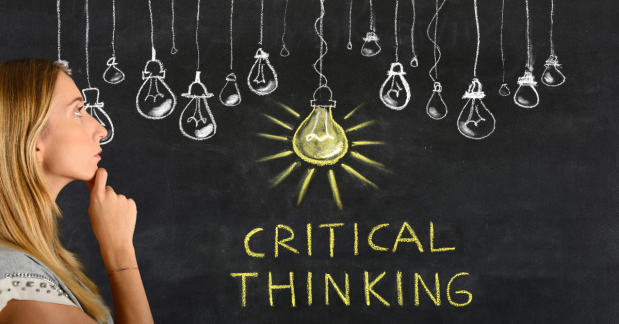Critical Thinking: The Cornerstone of Business Success

In today’s rapidly changing and competitive business landscape, critical thinking has emerged as a key differentiator for success. It empowers individuals and organizations to navigate complex challenges, make informed decisions, and achieve their desired outcomes.
What is Critical Thinking?
Critical thinking refers to the ability to analyze information objectively, identify assumptions and biases, evaluate evidence, and draw well-reasoned conclusions. It involves a structured approach to problem-solving that utilizes logic, reason, and evidence to arrive at the best possible solution.
Why is Critical Thinking Important for Businesses?
In a world saturated with information and bombarded by opinions, critical thinking provides a valuable tool for businesses to:
- Make informed decisions: Critical thinking equips business leaders with the ability to assess data, identify trends, and analyze the potential consequences of different choices. This leads to more informed and strategic decision-making, ultimately driving better business outcomes.
- Solve problems effectively: By encouraging critical thinking, businesses can foster a culture of problem-solving where employees are encouraged to think independently, analyze situations from various perspectives, and develop innovative solutions. This fosters a proactive approach to challenges, leading to quicker and more effective solutions.
- Enhance creativity and innovation: Critical thinking encourages questioning the status quo, exploring alternative solutions, and challenging established norms. This fosters a culture of creativity and innovation, where employees are empowered to think outside the box and develop new ideas, products, and services.
- Improve communication and collaboration: Critical thinking promotes active listening, clear communication, and the ability to consider diverse perspectives. This leads to more effective collaboration, where teams can work together efficiently and achieve common goals.
- Adapt to change: The business environment is constantly evolving. Critical thinking empowers individuals and organizations to adapt to change, identify opportunities, and respond effectively to new challenges and market trends.
Developing Critical Thinking Skills in Your Business
There are several strategies businesses can implement to cultivate critical thinking skills within their workforce:
- Encourage open communication and debate: Create a culture where diverse viewpoints are encouraged and employees are comfortable questioning assumptions and challenging established norms.
- Promote active learning: Provide opportunities for employees to learn new skills, engage in challenging projects, and participate in workshops and training that develop their critical thinking abilities.
- Lead by example: Leaders should demonstrate critical thinking skills by asking insightful questions, analyzing information objectively, and making decisions based on evidence.
- Provide opportunities for reflection and feedback: Encourage employees to reflect on their decision-making processes and provide constructive feedback to help them improve their critical thinking skills.
- Utilize technology: Leverage technology tools that can help employees analyze data, visualize information, and identify patterns and trends.
Conclusion
By fostering a culture of critical thinking, businesses can equip themselves to thrive in the complex and dynamic global economy. By encouraging employees to think independently, analyze information objectively, and make informed decisions, businesses can unlock their full potential and achieve sustainable success.



